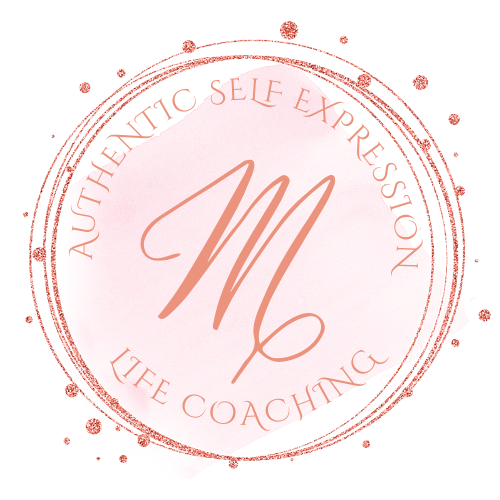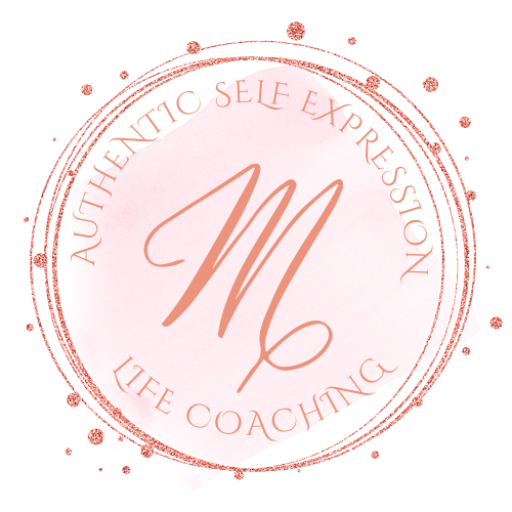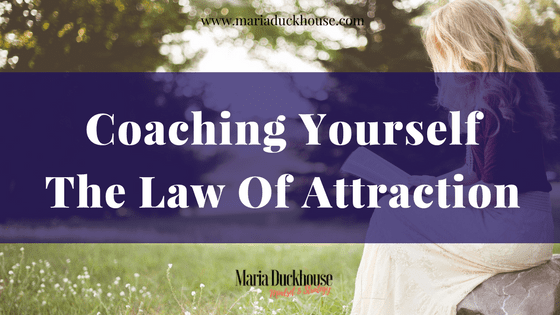The Pain of Feeling ‘Too Much’
If you’ve ever been told you’re “too sensitive,” “too emotional,” or “too much,” you’re not alone. For so many of us who feel deeply, this message becomes woven into our stories from a young age. Whether it arrived through teasing, gentle correction, or outright rejection, the result is often the same.
We learn to tone ourselves down. To hide the parts of us that feel things deeply. To treat our emotional sensitivity as a character flaw rather than a form of profound intelligence.
And while the world may praise logic, confidence, and unwavering resilience, you may have found yourself wondering if you were simply built wrong. If the way you feel so much, notice so much, and need so much space to process is a personal defect instead of a sacred design.
But here’s what I’ve come to know through my own journey and through walking alongside countless soulful women who share this gift:
You were never too sensitive. You were simply disconnected from your inner power.
This is a deep, compassionate invitation to understand what sensitivity truly is, why it can feel like such a burden, and how to begin embracing it as one of your greatest sources of truth, wisdom, and creative power.
Let’s begin with the truth you may never have been told: sensitivity is not weakness. It is awareness made manifest.
What It Really Means to Be a Sensitive Soul
Sensitivity has nothing to do with fragility. It is not overreaction or an inability to “handle life.” These are stories we’ve been told that have nothing to do with the reality of who you are.
True sensitivity is the sacred ability to:
- Perceive subtle shifts in energy, emotion, and atmosphere that others miss entirely
- Feel things deeply and allow them to move through you like weather through an open sky
- Notice beauty, nuance, and pain with equal intensity and presence
- Sense what isn’t being said in a room, the undercurrents that speak louder than words
- Empathize with others in ways that feel almost cellular, as if their emotions become temporarily yours
In essence, sensitivity is a form of emotional and energetic intelligence that few understand and even fewer honor. But because we live in a culture that often values productivity over presence, efficiency over empathy, and certainty over the beautiful uncertainty of feeling, these gifts are misunderstood and pushed underground.
From a young age, many sensitive souls are conditioned to believe they must “toughen up” to survive in this world. This creates a profound internal conflict. We begin to suppress what flows most naturally through us in order to fit into spaces that were never designed for our way of being. The cost is often a devastating disconnection from our truth, our bodies, our voice, and the creative expression that wants to move through us.
The Hidden Cost of Dismissing Your Sensitivity
When you spend years trying to be less sensitive, something essential begins to wither. The protective strategies we develop, while necessary for survival, often become prisons of their own making.
You Lose Trust in Your Own Emotional Responses
You begin to second-guess every feeling that rises within you. You wonder if you’re being dramatic, if your response is proportional, if you’re making something out of nothing. You become your own harshest critic, invalidating your experiences before anyone else can touch them with their doubt.
This self-abandonment cuts deep because emotions are information. They are your internal guidance system trying to communicate something essential about your experience, your needs, your boundaries, your truth. When you stop trusting this inner wisdom, you lose access to one of your most reliable compasses for navigating life.
You Become Disconnected From Your Body
To survive the intensity of feeling, you might learn to dissociate, to live primarily in your mind, to stay perpetually busy so you don’t have to inhabit the fullness of your embodied experience. Your body, which holds such wisdom, begins to feel unsafe, foreign, like a house you once knew intimately but can no longer call home.
This disconnection from your physical self ripples out into every area of life. You lose touch with your intuition, your creative impulses, your natural rhythms, your ability to know what you truly need in any given moment.
You Build Your Identity Around Being “Easygoing”
You pride yourself on being low-maintenance, accommodating, the one who never causes problems. You become skilled at reading rooms and adjusting yourself accordingly. You say yes when your soul is screaming no. You smile when you want to weep. You become a master of emotional shape-shifting, losing yourself in the process.
This isn’t kindness; it’s self-erasure dressed up as virtue.
Your Creative Voice Goes Underground
Because expressing your inner world feels risky, because authenticity has been met with rejection or misunderstanding, you begin to silence the very parts of yourself that once felt most alive and inspired. Your creativity, which is intimately connected to your emotional depth, gets buried under layers of should and must and what’s acceptable.
The world loses access to your unique gifts, but more devastatingly, you lose access to the part of yourself that feels most essential, most you.
You Seek Validation Through Endless Giving
You become the caretaker, the listener, the one who holds space for everyone else’s emotions while your own remain unwitnessed. You give and give and give, hoping that your usefulness will earn you the love and acceptance that you’ve learned to believe your authentic self cannot.
This pattern of over-giving isn’t generosity; it’s a survival strategy born from the belief that your true self isn’t worthy of love.
These protective patterns aren’t wrong. They served a purpose. You developed them for excellent reasons when you were trying to stay safe in environments that couldn’t hold your sensitivity with care. But if you’re reading these words, it’s likely because that protection has begun to feel more like a cage than sanctuary.
It’s time to release the story that sensitivity is something to fix and begin the sacred work of reclaiming it as something to trust.
Why Sensitivity Feels Unsafe (And How to Create a Different Experience)
If embracing your sensitivity feels terrifying, please know this isn’t a personal failing. Most of us were never taught how to care for our sensitive nervous systems. Instead, we learned to suppress, rationalize, or ignore the very feelings that were trying to guide us home to ourselves.
This creates a feedback loop where feeling deeply equals danger, where opening your heart feels like inviting devastation.
But we can interrupt this pattern. We can create a different experience entirely.
You Don’t Need to Get Stronger; You Need to Feel Safer
Strength, as it’s commonly understood, has nothing to do with being unaffected by life. Real strength comes from being resourced enough to feel deeply without losing yourself in the feeling, to stay present with intensity without being overwhelmed by it.
When you create genuine emotional safety for yourself, your sensitivity transforms from liability into asset. You can feel without drowning. You can notice energy without absorbing it as your own. You can express emotion without shame or apology.
This safety isn’t built through toughening up; it’s cultivated through tender, consistent care for your inner world.
Emotional Safety Lives in Your Body
Your journey back to safety begins in the wisdom of your physical form. Your body, which has been holding so much, knows how to release what it no longer needs to carry. It knows how to return to a state of groundedness and ease.
Here are some gentle ways to begin rebuilding that sense of inner sanctuary:
Breathwork that soothes your nervous system. Try exhaling longer than you inhale, letting your out-breath carry away what you’re ready to release.
Loving presence for your own experience. Place a hand on your heart and speak to yourself with the same tenderness you’d offer a dear friend: “It’s safe to feel this. You’re not alone.”
Grounding through simple pleasures. Warm tea held between your palms, the texture of something soft, gentle movement that honors what your body needs in this moment.
Witnessing without fixing. Practice naming your emotions without immediately jumping into problem-solving mode. “I notice I’m feeling overwhelmed.” “I can sense sadness moving through me.” Simple acknowledgment without agenda.
These small acts of self-tenderness begin to rewire your system at the most fundamental level. They communicate to every cell in your body that it’s safe to feel, safe to be human, safe to be exactly who you are.
Your Sensitivity as Sacred Gift
Now that we’ve gently unhooked from the shame that’s been wrapped around your sensitivity, we can begin to explore what this gift actually offers, not just what it seems to cost.
When you stop fighting your sensitive nature and start partnering with it, you discover capacities that are nothing short of extraordinary.
Creative Depth That Touches Souls
Your ability to feel the subtle nuances of human experience means your creative expression carries emotional weight that can’t be manufactured or learned. Whether you write, paint, sing, or express yourself in any other way, your work has the power to reach people in places they didn’t even know needed touching.
You create from the depths, and depth calls to depth. Your sensitivity becomes a bridge between your inner world and the hearts of others who have been waiting their whole lives for someone to give voice to what they’ve felt but couldn’t express.
Emotional Intelligence as Navigation
Your capacity to sense what others need before they even speak it becomes, with healthy boundaries, a superpower of authentic connection. You can meet people where they are, offer the kind of presence that feels like coming home, create spaces where others feel safe to be vulnerable.
This isn’t about fixing or saving anyone; it’s about being so comfortable in your own emotional landscape that you can hold space for others to explore theirs.
Intuitive Wisdom as Inner Compass
That ability to pick up on energy, to sense what’s not being said, to feel into the truth beneath appearances becomes your most reliable guidance system. When you learn to trust these subtle knowings instead of dismissing them, you gain access to a form of wisdom that can navigate you through any complexity life presents.
Your sensitivity isn’t making you naive; it’s making you wise in ways the world desperately needs.
Communication That Heals
Because you know what it feels like to be misunderstood, dismissed, or unseen, you naturally speak in ways that make others feel witnessed. Your voice becomes medicine for all the people who are tired of surface-level conversations and soul-hungry for authentic connection.
You have the gift of seeing people’s true selves and reflecting that back to them through your presence, your words, your willingness to go deep.
Visionary Thinking That Sees Connections
Your sensitive nature wires you for synthesis, for seeing patterns and connections that others overlook. You think in symbols and metaphors. You make meaning from seemingly disparate experiences. You envision possibilities that don’t yet exist but want to be born.
This is the consciousness our world needs to solve its most complex challenges, to create beauty where there was only function, to imagine new ways of being human together.
Can you begin to see how extraordinary this gift is? When you stop fighting your sensitivity and start partnering with it consciously, you unlock access to a different kind of power entirely. Not the kind that dominates or controls, but the kind that nurtures, creates, heals, and transforms.
Rewriting Your “Too Sensitive” Story
One of the most liberating things you can do is consciously rewrite the internal narrative that has cast your sensitivity as a character defect. This story was never yours to begin with; it was handed to you by people who didn’t understand the gift you carry.
Notice the Language You Use With Yourself
Every time you catch yourself saying “I’m too much” or “I need to get over this,” pause. Breathe. Ask instead:
“What am I feeling right now, and what might it be trying to show me?” “What do I need in this moment to feel more resourced?” “How can I honor this experience instead of pushing it away?”
This shift from self-criticism to self-curiosity changes everything. Instead of being at war with your inner experience, you become curious about it. Instead of judging your responses, you start gathering information from them.
Examine Where This Story Originated
Whose voice do you hear when you tell yourself you’re too sensitive? A parent who didn’t know how to hold space for big emotions? A teacher who mistook your depth for drama? A culture that rewards emotional suppression?
Understanding the source of these messages helps you recognize that they’re not truth; they’re simply perspectives from people who were working with their own limitations and wounds.
You have the power to set these inherited stories down and write new ones that actually honor who you are.
Replace Shame With Sacred Recognition
What if your sensitivity isn’t a burden to bear but a sacred responsibility to tend? What if feeling deeply isn’t weakness but a form of service to a world that has forgotten how to feel? What if your tenderness isn’t something to hide but a strength the world desperately needs?
Your sensitivity is not accidental. It’s not a design flaw. It’s a feature of your soul that has something essential to offer this world.
Boundaries: The Bridge Between Sensitivity and Power
Here’s something many sensitive souls are never taught: you can be deeply sensitive and have incredibly strong boundaries. In fact, you must.
Boundaries aren’t walls that keep love out; they’re bridges that show others how to love you well. They’re how your inner power reclaims its rightful place in your life, not through force but through clarity.
Without boundaries, sensitivity becomes exhausting martyrdom. With boundaries, sensitivity becomes sustainable power.
Simple Boundaries That Honor Your Nature
Taking time to process before responding. “I need some time to think about this before I can give you an answer.”
Protecting your energy from draining interactions. This might mean shorter phone calls, choosing not to engage with certain topics, or simply removing yourself from conversations that feel toxic.
Sacred creative time that’s non-negotiable. Treating your need for creative expression as seriously as you would any other essential appointment.
Curating what you consume. Being intentional about what you read, watch, and listen to, knowing that your sensitive system absorbs everything.
Permission to not know immediately. Allowing yourself to say “I’m not sure yet” without having to justify or explain your process.
Every boundary you honor sends a message to your nervous system that you’re safe, that you matter, that your needs are valid and important. This safety allows your sensitivity to flourish instead of overwhelming you.
Boundaries aren’t selfish; they’re sacred acts of self-love that allow you to show up more fully in all your relationships.
What It Feels Like When You Reclaim Your Inner Power
When you begin to truly honor your sensitivity as the gift it is, something fundamental shifts within you. You stop trying to fit into spaces that were never designed for your way of being and start creating your own.
You Stop Chasing “Resilience” and Start Embodying Presence
Instead of trying to become someone who bounces back quickly from everything, you become someone who can be fully present with whatever arises. Your power isn’t in being unaffected; it’s in being able to feel deeply without losing yourself.
You Stop Over-Giving and Start Choosing Consciously
Your generosity becomes intentional rather than compulsive. You give from fullness rather than emptiness. You offer your gifts where they’re truly welcomed and valued rather than casting them broadly, hoping someone will catch them.
You Stop Silencing Yourself and Start Creating From Truth
Your voice, which has been underground for so long, begins to emerge with a quality that surprises even you. It carries weight, depth, authenticity that can only come from someone who has done the work of coming home to themselves.
Your inner power doesn’t need to look like conventional confidence. It often appears as:
- Deep calm in the midst of chaos
- Clarity about what you need and why
- Creative expression that feels essential rather than optional
- A nervous system that can hold complexity without breaking
- Intuitive knowing that you trust and follow
- Decisions that align with your deepest values
This transformation begins with the simple, revolutionary act of saying: “My sensitivity is not a problem to solve. It’s an integral part of my power.”
Coming Home to Your Sensitive Self
There is nothing wrong with you. You are not too sensitive. You are not too much.
You were simply never taught how to recognize and trust the profound power that lives within your softness.
But you can learn this now. You can begin this sacred work of coming home to yourself today. Gently. Gradually. With infinite compassion for how far you’ve already traveled.
Reconnecting with your inner power doesn’t mean becoming louder, bolder, or more like someone else. It means becoming more fully yourself, more deeply rooted in your own truth, more unshakeable in your knowing of your own worth.
Your sensitivity is not your weakness; it’s your signal system, your guidance, your gift. Let it guide you back to the home you never actually left but perhaps forgot how to inhabit.
You belong here, in your own life, in your own body, in your own beautiful way of being. And the world needs exactly what you have to offer, exactly as you are.
Trust the gift you carry. Honor the depth you hold. Let your sensitivity be the sacred compass that guides you home.
Ready to Go Deeper?
If you want to stop overthinking and start creating from self trust, this is exactly what we explore together inside my 1:1 coaching sessions. Let us bring your vision to life in a way that feels aligned, grounded, and completely yours. Book a Session here.
Soulfully, Maria.
https://mariaduckhouse.com | Let’s connect on Instagram
Buy me a coffee




